Healthy habits start with self-love. You deserve your own care and affection more than anyone else in the universe.
I felt terrible about myself and my life approximately two years ago: I was unmarried, having trouble losing weight, unhappy at work (and not knowing how to change it), and just unhappy.
To be the person I wanted to be and have the things I desired, I kept trying to bully myself.
“I can not believe you said/ate/did that,” I kept telling myself. “There is something wrong with you,” and setting rigorous guidelines for myself to adhere to, just to violate them minutes later with the same self-destructive conduct.
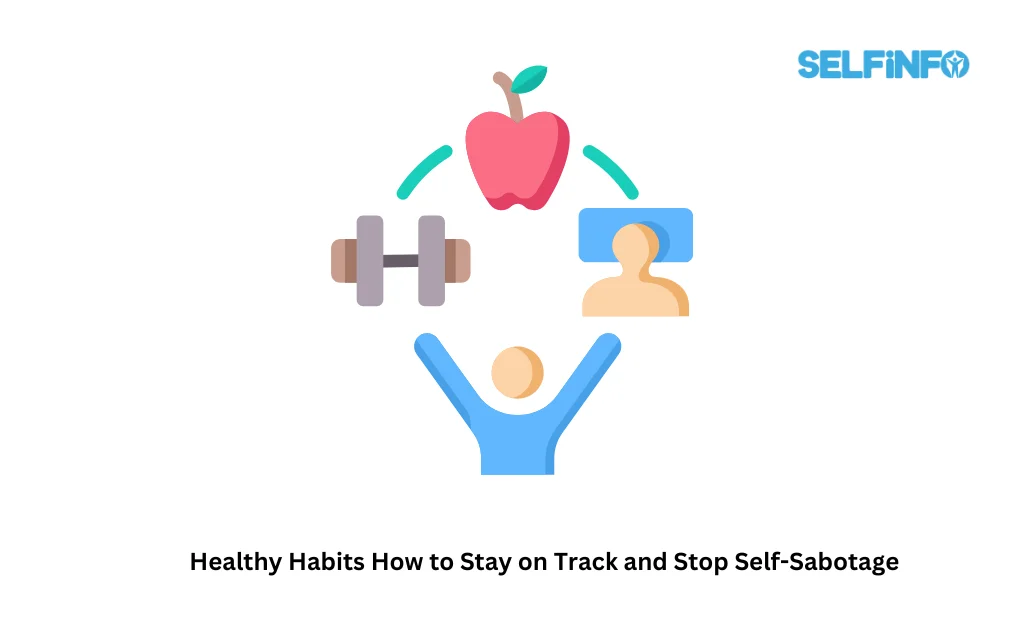
I believed that using force to go where I wanted to go was the only viable option. However, that simply strengthened my self-rebellion. Emotionally, physically, and financially, I wavered between overindulging and being frugal.
I once found a photo of myself when I was five years old. As I gazed at that adorable young child, I came to the realization that no parent would permit someone to treat her the same way I was treating myself, or permit her to engage in the behaviors I was allowing myself to get away with.
I realized how damaged my relationship with myself was when I looked at how I was living.
In addition to yelling at myself for “being bad,” which any parent or child knows is the most ineffectual type of motivation or cause for behavior change, I was allowing myself to do things that no rational parent would enable their child to do.
This made me question why we permit ourselves to engage in unhealthy behaviors that we forbid in children. Why is it that creating rules for ourselves is simpler than adhering to them?
This relationship with myself was ultimately healed, and I started “parenting” myself in a healthy way.
You may overcome these self-destructive tendencies and cease self-bashing by developing your self-parenting abilities and acting with love and affection. This will help you build a loving relationship with yourself that will help you fulfill your goals.
1. Identify your behaviors and habits.
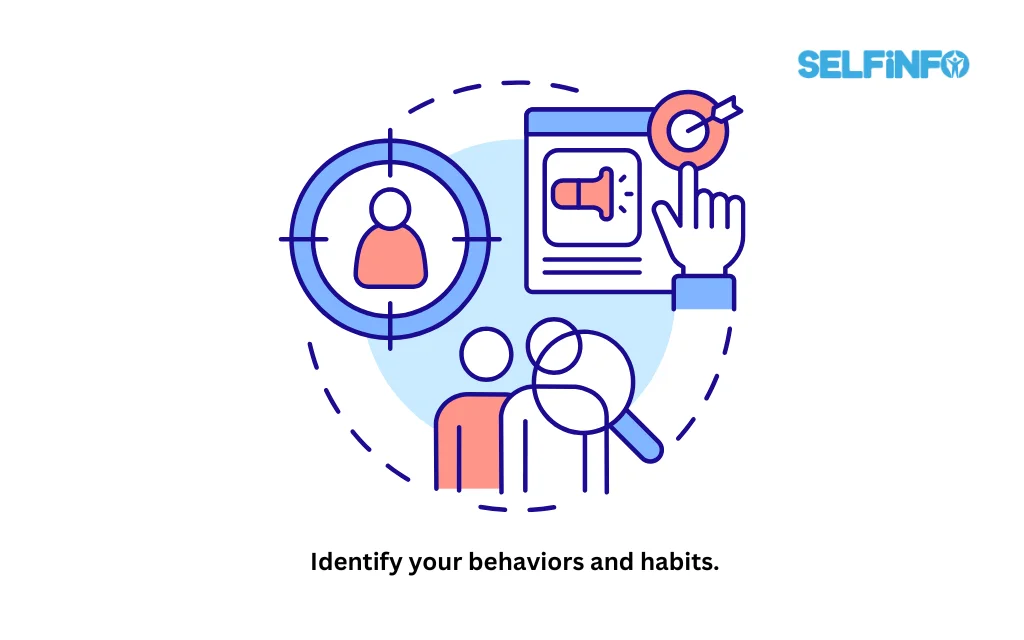
Take a moment. Pay attention to how you talk to yourself, how you eat, how you clean yourself, and how you sleep. Which of your routines and actions would you forbid your inner kid from engaging in?
A couple of mine were as follows:
- Being cruel to myself
- Having negative thoughts about other people
- Prioritizing sugar over nutritious food
- Having to stay up late when I am exhausted
- Using poor table etiquette by eating while watching TV or looking at a computer screen
The cruel ideas and actions are frequently linked. After labeling these patterns and actions as “self-sabotage,” we mentally criticize ourselves for them.
Something significant is happening beneath the surface if you find yourself in a vicious cycle of doing something you know deep down you should not do and then mentally scolding yourself for it.
2. Identify the repercussions of the behavior.
You will undoubtedly observe that these habits and behaviors prevent you from achieving the things you genuinely want, such as a fulfilling career, a wonderful relationship, and a physique you adore.
We are always acting in ways that either bring us closer to or farther from the person and life we desire. Your greatest desires are being thwarted by the very actions you continue to allow yourself to engage in.
Recognize how your happiness is directly impacted by the things you are doing and the thoughts you are having.
3. Understand why you developed these habits.
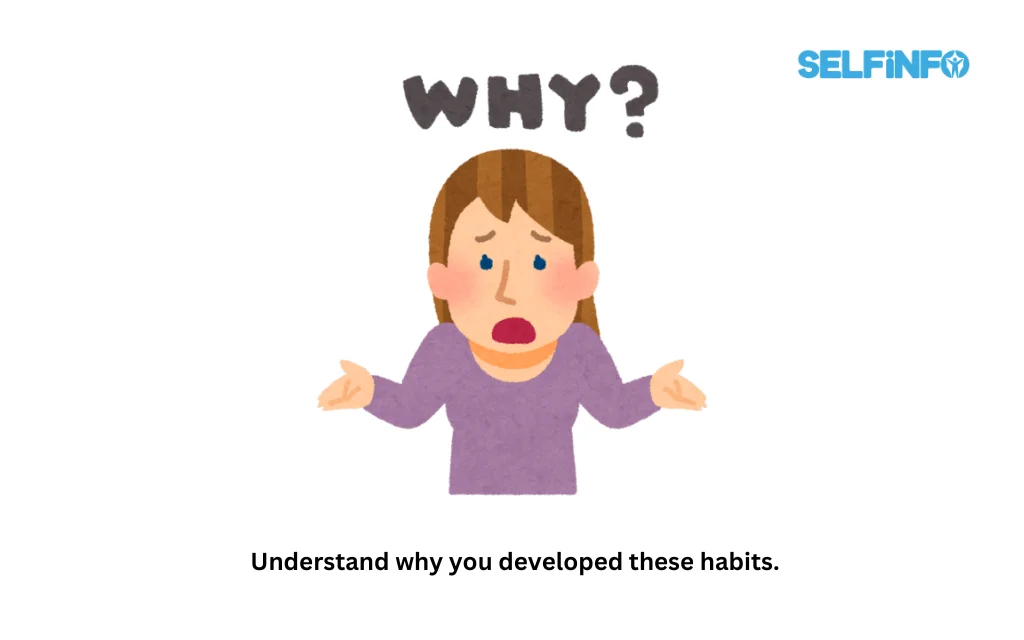
Examine closely to determine whether the thought or behavior pattern started as a means of providing for you. It does not matter if it is illogical or counterintuitive.
For instance, eating chocolate at ten in the morning was one of my self-destructive behaviors. The intense want to consume it every day suggested something more serious than the sugar rush, which I had assumed was the cause.
The realization that I had a whole day ahead of me, doing work I did not want to do in a place I did not want to be in, had my heart sink with melancholy by mid-morning, when I actually looked at it.
In search of an escape from reality and a rush of pleasure, I sought for the chocolate.
I was attempting to take care of myself by providing myself with some joy and comfort, therefore the aim was good. Sadly, it was not the best method to offer myself those things, and it exacerbated a vicious cycle of self-blame and had the unintended consequences of weight gain and sugar crashes.
Even when we are adults and are aware of the negative effects of a certain thinking or behavior, we nonetheless frequently engage in it. The constant motivation is to increase pleasure or move away from pain.
It can be hedonistic; many unhealthy activities have negative long-term implications but feel nice in the moment (sugar high, comfort, fulfillment). It can also be defiant because “breaking the rules” can be exciting.
It can be quite beneficial to overcome self-sabotage if you can pinpoint the areas in which you enjoy doing it.
Recognize that self-preservation is the only thing that exists, not self-sabotage. Even if this behavior was incorrect or no longer serves you, acknowledge that it was a way to keep you safe, happy, and loved in some manner.
You may now start parenting yourself consciously in a way that supports the person you want to be now that you have realized that this was an unconscious parenting style.
4. Create “house rules.”
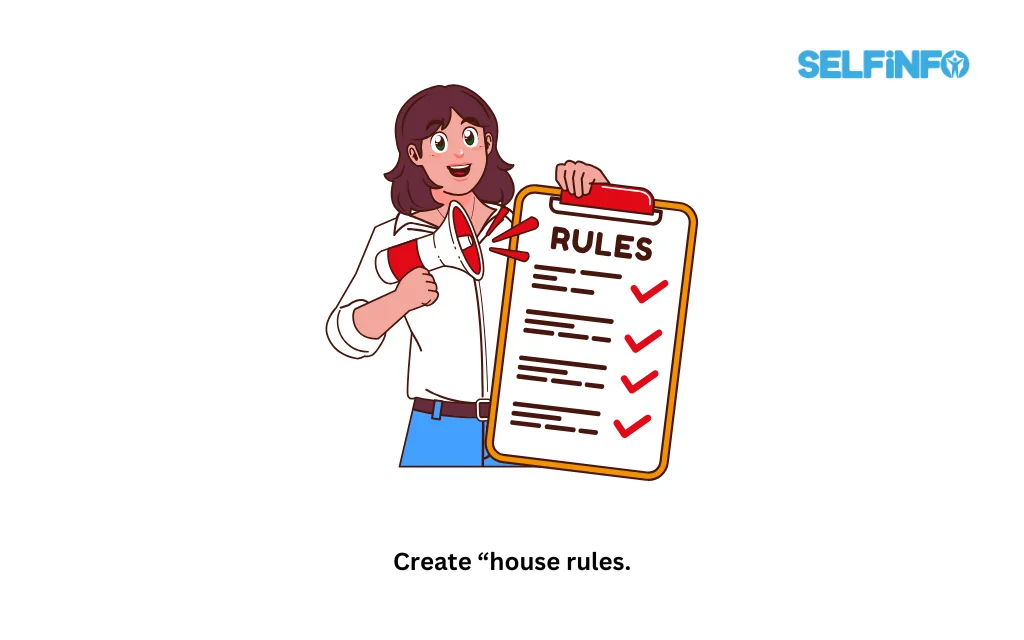
Because they can see the repercussions that a youngster does not yet understand, parents establish regulations.
Many of the things that were non-negotiable throughout my early years eventually led to the development of healthy habits.
For instance, every night we sat down to dine as a family. Since I did not believe there was any option, I developed the practice of eating meals together.
Recall your early years and the “home rules” that governed your conduct. Do you think bringing some of them back into your life would be beneficial? Do you think you should follow some of your children’s “home rules”?
Consider establishing a “house rule” if you have a particularly difficult habit to change that you know is bad for your health. It is much simpler to remain with something that is non-negotiable since it eliminates the internal discussion in which we haggle with ourselves.
Make sure your “rules” are created out of love and affection rather than cruelty or self-punishment. Put a “because” in there. “Because I told you to” was not a good enough justification, even as children.
So, reflect on what you saw as the consequences of your actions to understand why the rule exists and what you hope to achieve.
One of my “house rules,” for instance, was to refrain from consuming candy before noon. Every time a longing for chocolate strikes.
5. Hone your self-parenting skills.
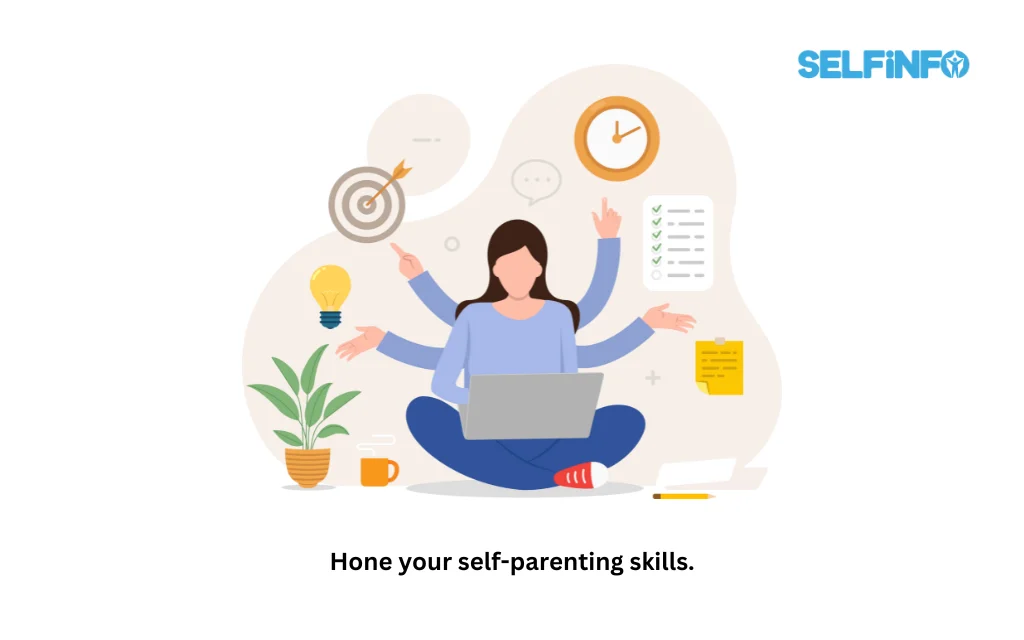
Examine your past interactions with your parents and kids to determine which parenting styles were most effective for you. It was probably a combination of being firm and dependable in upholding the “rules” and yet being kind, understanding, and patient.
Make sure you follow your rules by using the effective strategies you found. Along with making them non-negotiable and including a “reason,” remember to treat yourself when you have stayed true to your own rules and avoided temptation.
Treat yourself with the same boundless patience that you would a child. If you make a mistake once, talk to yourself about it rather than throwing everything out the window.
Recognize the reasons behind your actions. In that moment, what did you need? Find a way to offer it to yourself and emphasize the significance of abiding by the “rules.”
Which “house rules” have you changed? How can you be a nurturing and supporting parent to yourself?
